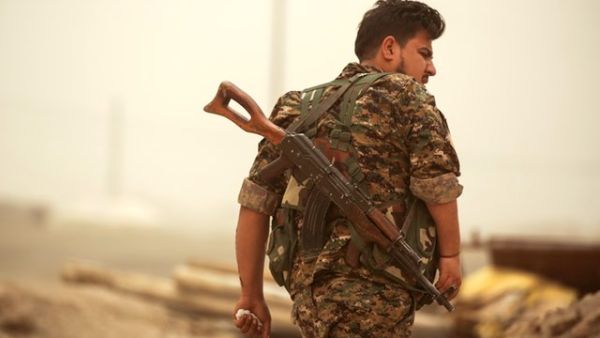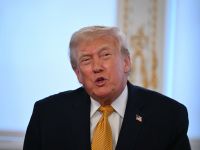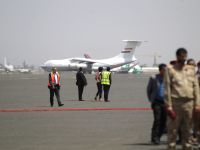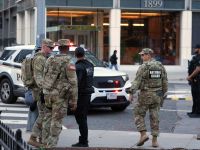Experts say the U.S. decision to arm Kurdish forces in Syria will strengthen U.S.-backed forces fighting ISIS and result in possible tacit agreements between the U.S. and unlikely partners.
The U.S. decision to directly arm Kurdish forces in Syria is a meaningful step forward in the fight against the so-called Islamic State, experts told Syria Deeply.
The decision gives the Pentagon clearance to arm the entire Syrian Democratic Forces, or SDF, a U.S.-backed coalition of Kurdish and Arab fighters dominated by the Syrian Kurdish People’s Protection Units (YPG), making gains against ISIS in northern Syria. After a month of fighting, on Thursday the SDF pushed ISIS out of the strategically significant town of Tabqa, positioning themselves to begin the assault on the militants’ Syrian stronghold Raqqa.
Syria Deeply asked four experts about the implications of this decision on the ground. In the first installment of this series, Nicholas A. Heras, Bacevich Fellow at the Center for a New American Security; Robert Lowe, deputy director of the LSE Middle East Center; Gokhan Bacik, associate professor of International Relations at Ipek University, and Eva Savelsberg, president of the European Center for Kurdish Studies, share their viewpoints on how the U.S. decision will impact Kurdish factions fighting ISIS and relations with other powers currently fighting the militant group.
Syria Deeply: The Pentagon said it has clearance “to equip Kurdish elements of the Syrian Democratic Forces as necessary to ensure a clear victory over ISIS in Raqqa.” Keeping in mind that Syrian Kurds make up the majority of the SDF, which the U.S. was already training and arming, how will this new decision affect the Kurds’ military capabilities on the ground and the SDF’s involvement in the anti-ISIS fight?
Nicholas Heras: There has always been a tension between the U.S. military’s insistence that only Arab groups within the SDF received weapons and the reality that the YPG maintains majority within the SDF. This is why the moniker Syrian Arab Coalition was created by the U.S. military in the first place, to create a constant rhetorical and sometimes real distinction between the Arabs receiving U.S. weapons and ammunition and the Kurds, that Turkey is fearful that the U.S. is empowering.
Is this order a game changer? Not necessarily. None of the weapons that would potentially be given to the Kurds, except for antitank missiles, would be a direct threat to the Turkish military. And even antitank weapons, which ISIS has used so effectively against the Turkish military in and around al-Bab, can be seized by the Kurds in battle from ISIS.
This order needs to be assessed in the context that for the better part of two-and-a-half years, U.S. Special Forces have been networking with, training and fighting beside Kurdish SDF in the field. The SDF was nurtured and mentored by the U.S. military. The prohibition against providing direct military assistance to Kurdish groups in the SDF, which are a large component of the SDF, was preventing the full actualization of the SDF to take Raqqa. This order changes that, and in so doing, broadens and deepens the relationship of the U.S. military with the SDF in a way that cuts Turkey out of the battle for Raqqa, and subsequent battles to come against ISIS throughout eastern Syria.
Robert Lowe: The Kurdish forces have been relatively successful in the war but have lacked heavy weaponry and are currently struggling to make progress into ISIS-held Raqqa. The U.S. decision to provide heavier weapons among its supplies to the Kurds could therefore be significant in tipping the balance in their favor. The U.S. has apparently imposed conditions on the use of the weapons but the supply clearly strengthens the YPG.








